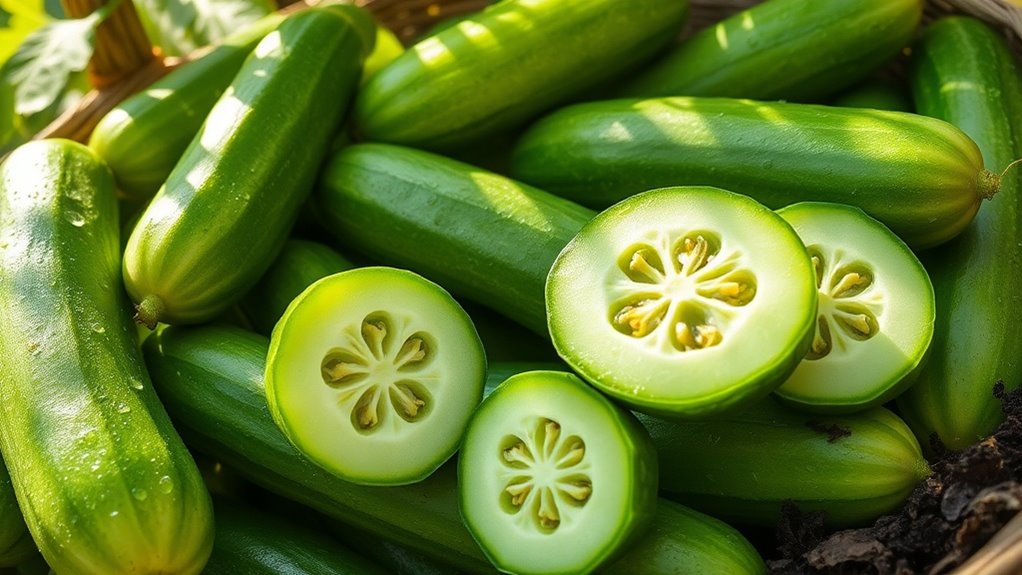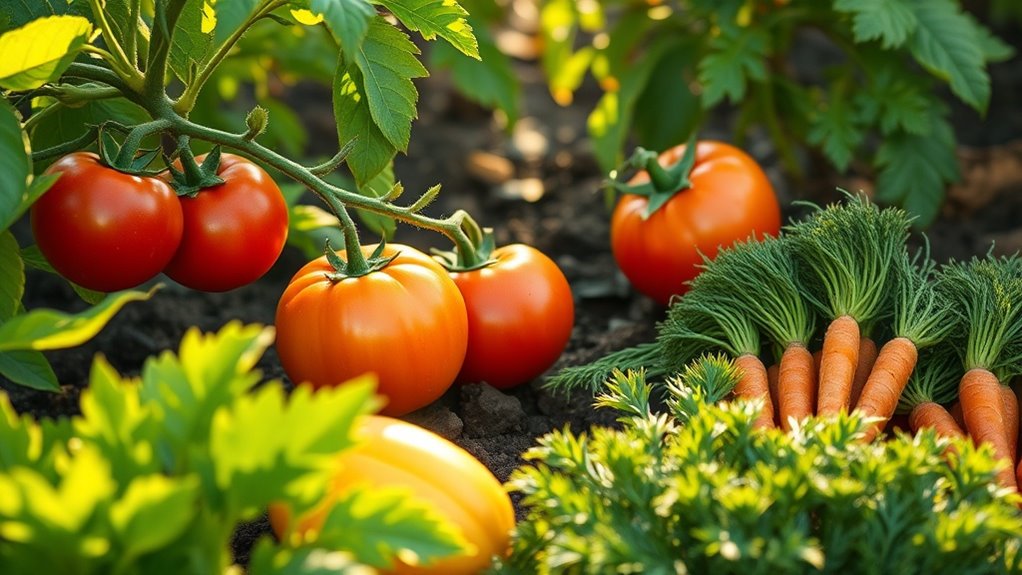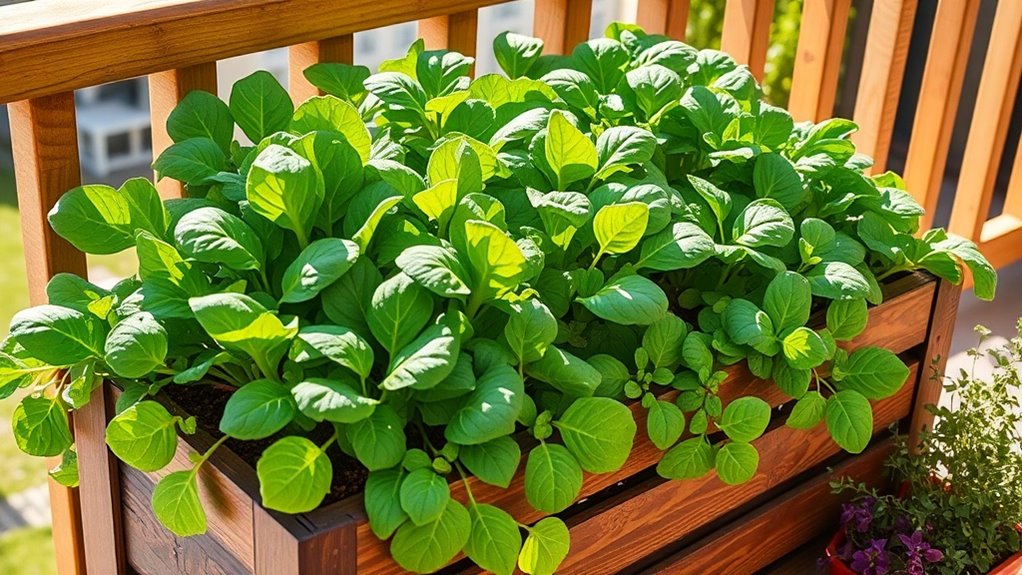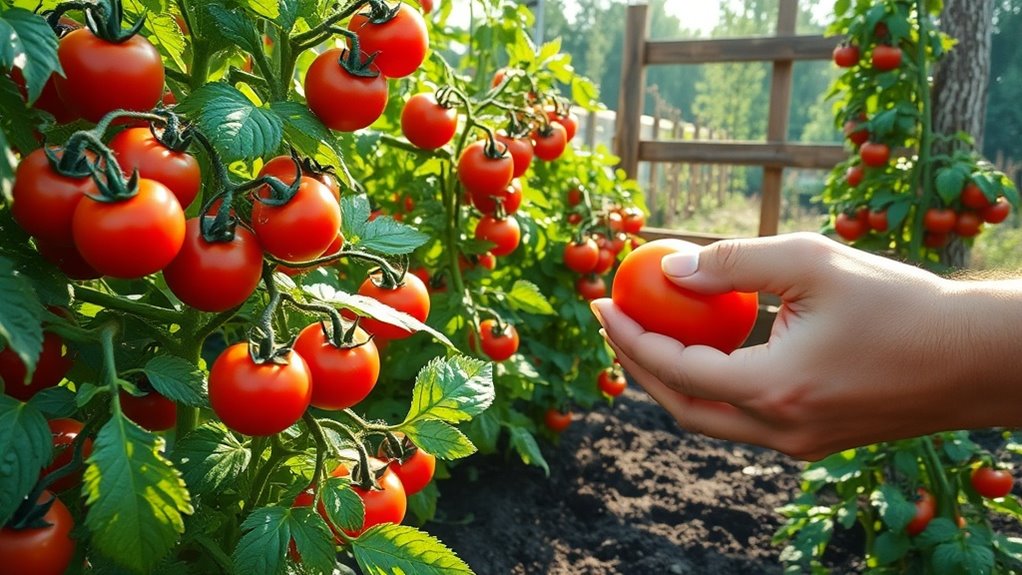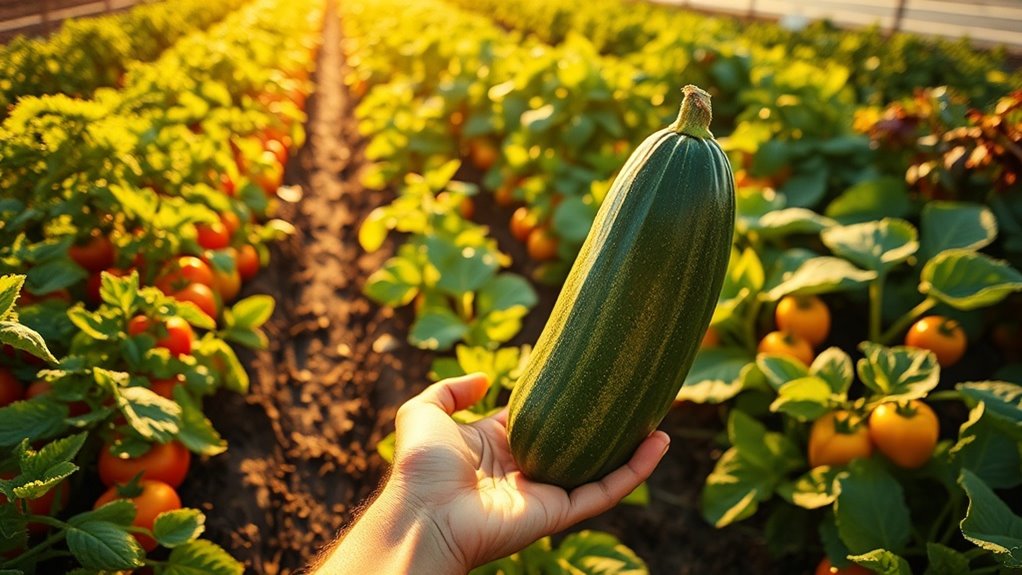The Secret to Juicy, Flavorful Cucumbers
Did you know that the variety of cucumber you choose significantly impacts its flavor and juiciness? Selecting the right type is just one aspect of growing these vegetables successfully. You’ll also need to focus on soil quality, watering techniques, and sunlight exposure. Each element plays a critical role in developing cucumbers that burst with flavor. Understanding these factors can make all the difference in your harvest. Let’s uncover the best practices for achieving that perfect crunch.
Choosing the Right Cucumber Variety
When selecting the right cucumber variety, how do you determine which type meets your culinary needs?
Evaluate factors like climate, space, and intended use—such as slicing or pickling. For growing cucumbers, consider options like cucumber ‘Marketmore’ for fresh eating or ‘Boston Pickling’ for preserving.
Each variety thrives under specific conditions, so choose wisely to ensure a successful harvest and satisfying flavor.
Preparing the Soil for Optimal Growth
Selecting the right cucumber variety is just the first step; preparing the soil is key to unlocking their full potential. Begin by testing your soil’s pH and nutrient levels. Aim for a pH of 6.0-6.8 and enrich it with organic matter like compost. Conducting DIY soil tests can provide valuable insights into your soil health.
| Soil Component | Ideal Level |
|---|---|
| Nitrogen | Medium |
| Phosphorus | High |
| Potassium | Medium |
Essential Watering Techniques
Effective watering techniques are crucial for encouraging healthy cucumber plants and maximizing their yields. You should water deeply but infrequently, ensuring the soil reaches 6-12 inches down.
Aim for early morning watering to reduce evaporation and fungal risks. Maintain consistent moisture, avoiding waterlogging or drought stress, as both adversely affect growth and flavor. Implementing a sustainable watering schedule can help achieve this balance.
Using a drip irrigation system can help achieve this balance.
Sunlight Requirements for Flavorful Cucumbers
Providing the right amount of sunlight is vital for growing juicy, flavorful cucumbers. Aim for at least 6 to 8 hours of direct sunlight daily, as this exposure enhances photosynthesis and sugar production in the fruits.
Insufficient sunlight can lead to bland, watery cucumbers. Monitor your plants and adjust their location if necessary to ensure they receive adequate light throughout their growing season. Additionally, regular monitoring of your plants helps identify any potential stressors that could affect their growth and flavor.
Pest Control Strategies for Healthy Plants
As you cultivate your cucumbers, it’s crucial to implement pest control strategies that maintain plant health and maximize yield.
Utilize integrated pest management, incorporating beneficial insects like ladybugs and parasitic wasps.
Regularly inspect plants for aphids, beetles, and cucumber beetles, responding swiftly with organic insecticidal soaps. Additionally, crop rotation and maintaining plant diversity can enhance resilience against pests, fostering a healthier cucumber crop overall. Consider using essential oils as natural repellents to further deter unwanted insects and create a more hospitable environment for your plants.
Harvesting at the Perfect Time
After you’ve established robust pest control strategies, the focus shifts to harvesting cucumbers at the right time for optimal flavor and texture.
Cucumbers should be harvested when they’re 6 to 8 inches long, firm, and shiny. Picking them in the morning enhances sweetness, while prompt harvesting encourages continued fruit production. Regularly check your plants to ensure you gather cucumbers before they overripe or develop seeds. Additionally, ensuring ideal soil composition supports overall plant health, which can further enhance the flavor of your cucumbers.

